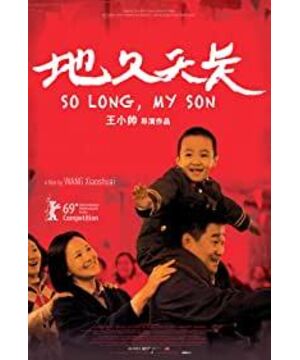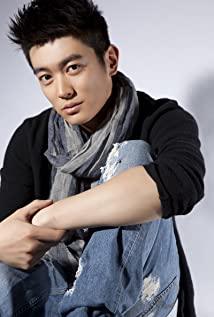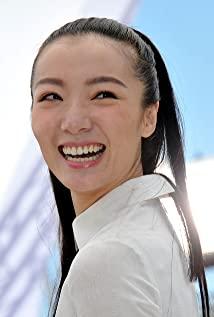When the movie came to the end, I unconsciously came up with a dialogue that I had seen in Qi Hua Shuo.
"With the passage of time, we will eventually forgive those who hurt us," Ma Dong said.
Kang Yong replied: "That's not 'forgive', but 'forget it'."
The tragedy of Yaojun and Liyun is probably hidden in this sentence.
They couldn't blame a child for Xingxing's accidental death, he was just playful and had no ill intentions.
Losing the fetus and fertility, they can't resent their friends, she is also a last resort, and her responsibility is.
In the face of Liyun's apology, Yaojun can't blame him. He is the source of the responsibility by pretending to be sterilized and refusing to contraception.
Suspecting Yaojun's derailment, Liyun can't complain. After all, it's herself who can't bear children, and Yaojun can start over.
Since you can't blame anyone, it doesn't matter if you forgive, you can only blame yourself for your bad life. Emotions have no place to vent, so they have to live in helpless numbness, time passes, and life is still.
Xingxing was born in 1982. His parents should be born in the 50s. They caught up with the generation of educated youth who went to the countryside and returned to the city. My mother is called a "heroic mother". She is accustomed to the liveliness of the big family, and is used to listening to the encouragement of having multiple births. In this generation, the policy has suddenly changed to only one child per family, and the punishment for excess birth is directly linked to the salary of the post. The concept is not easy to turn.
As the representative of the great era and the great collective, national policies have serious consequences for individuals. Behind a slogan is how many people's frivolous lives are . Acceptance is the most important core of film discussion or reflection. Liu Yaojun and Wang Liyun and his wife are like the bungalows where they live. In the torrent of the times, they were left behind, standing alone in the bustling and bustling city, looking backward and out of place. The contrast between Liu Xing's tomb and the large cemetery at the foot of the mountain is also a similar metaphor. In the end, Yaojun and Liyun, the so-called thinking about it, is just a habit, and the so-called forgiveness is just a matter of forgetting. The seemingly warm ending is more like a false fantasy.
The film also revealed the influence of some traditional ideas.
It is a common concept that Yaojun finds someone to take his place, and men resist sterilization. Repeated neglect of contraception is also a source of prejudice. The concept of inheriting the lineage is evident from the phrase "with a handle". The emphasis on blood ties can be seen from the fact that the couple can only use the adopted son as a substitute and not as a real son. The contempt for women's status can be felt from Li Yun's self-blame apology on the hospital bed, and the military queen He Yao only blames herself for her incompetence but never thinks she is at fault.
There are also descriptions of moral dilemmas.
The first one is the emotional temptation outside the family. Yaojun had a vague affection for Jasmine from his apprenticeship period, and when Jasmine came back as a big girl, this affection was obviously intensified. The eyes that looked at Jasmine also shone, it was the only bright color that appeared occasionally in his painful years, so when he got news of Jasmine again many years later, his almost dead heart was a little revitalized. When the family is full, the temptation outside may be ignored. When the burden is overwhelmed, escaping is a choice to relieve pain. Even if it is only a short escape, you can get a breath of fresh air, so Yaojun seized this opportunity. .
The second is the unequal state after losing the only child. In the film, Yaojun is responsible for Liyun's loss of fertility. This is the script design. In fact, for elderly couples who lost their only child, the man has a longer reproductive period. Congenital advantages, in this case, it is common to leave the wife to reorganize the family. Reason is truth, human nature is human nature, even if Yaojun owes Liyun, as long as he is selfish enough, he can get a new life. Besides, Liyun never blames anyone, she only blames herself for her poor health and bad life, but feels that she is indebted. husband. As the saying goes, thousands of doors, selfish people can go first. However, the script was designed again that Liyun offered to divorce, and even committed suicide in order to free himself and fulfill her husband, so the movie forced Yaojun to give up the reason why he could not abandon his wife, so there was no discussion on this predicament that was highly related to the theme. Space, can only accept the arrangement of the screenwriter.
The third is the emotional problem of adopting a family. The exile (Liu Wang) couple gave up adopting a younger child to re-cultivate their relationship, but chose Zhou Yongfu, who was older but looked like a star as a stand-in. Duan conflict, the kowtow before the adopted son left home, Yaojun's farewell words and deeds, and Liyun's letter, it is not difficult to imagine that this forcedly put together family is difficult but unhappy, and there is not even a trace of happiness. Bloodline and feelings, stand-in and self, these are the issues that Chinese adoptive parents and adopted children must face under the very different values of China and the West. However, the ending was forcibly arranged by the screenwriter again. The reconciliation of the adopted son was not unexpected, but the adoptive parents The contradiction is confusing. The relationship with the adopted son in the film reminds me of another sentence in Qi Hua's story, which is Ma Dong's "people with too much bitterness in their hearts, as long as a little sweetness is enough." If Yaojun Liyun and his wife ever really regarded their adopted son as their own Children, this family will not be forever shrouded in gloom and bleak, and there will be no joy in sight. Yaojun's words only emphasize feeding, drinking, beating and scolding lessons, but also reveal the simplicity and rudeness caused by the lack of knowledge of most parents in that era, and even more so. Not to mention the various psychological problems that should be considered in the adoption relationship, the couple are too busy to take care of themselves, and adoption is also a selfish consideration based on their own needs, so how can they even consider adopting a child.
The fourth is the wrong attitude of the party at fault. Some of the actors’ lines and performances while watching the movie made me think that Haiyan represented a supporter or even a spokesperson who was assimilated by the policy. As a result, the screenwriter changed her style and she became the same For the indirect victimization of the policy, this kind of setting is okay, and it strengthens the sadness that the hero and heroine have no one to blame and no right to forgive. Of course, this is not necessary. Even if it is only for the sake of their own jobs, the tragedy of the two couples is still Inevitably, to a certain extent Haiyan was actually helping them and thinking about herself. After the Xingxing accident, I once thought that Shen Li and his wife might want to abandon their friends. It is not impossible to deceive yourself or even slap you. After all, such news is more common in reality, which is also in line with human nature. Some of the darker aspects of it, such as helping relatives and not helping others, such as shifting responsibility in order to relieve guilt, such as running away because of not wanting to take responsibility and lowering living standards. As a result, the screenwriter arranged for Haiyan to suffer to the point of being neurotic for a lifetime, and finally suffered from a terminal illness, which is quite like the ending of Xue Zhenzhu in the first half of her life, in exchange for the hero and heroine who had to meet and understand. There is also a wise reaction, as he made a lot of money by going to sea in his early years, even if he did not dare to ask for money to solve the problem easily because of his friend status, but at the age of Haohao at the time, he was more than asking Yaojun to take a knife to cut this. The boy's life is exchanged for another life. This kind of proposal, which he knows can't be done, promises that his son will give the other party's old age and death, which is more in line with the relationship between the two parties. The same is true for Shen Hao when he grew up. Telling the truth of the year is more like a selfish act just for himself to be relieved and regardless of the other party's sadness. At least he should add "I know you have always wanted to know the truth of the year just for protection. I just endured it all the time" and other words of intention to consider for the other party. As for the later crying, or promising to take care of walking, I don't mind leaving blank, these can be made up by myself.
The rest are social realities.
Going to the mountains and going to the countryside, educated youth returning to the city, taking factories as their homes, family planning, cracking down on hooligans, going to sea for gold, layoffs from state-owned enterprises, reform and opening up, urban construction, and real estate development. These realities are the setting of the times and the clues of the characters. Taken together, they serve the theme of "times and individuals", and there is no intention to discuss them separately in the film.
The above are all social issues involved at the level of film stories, that is, the "face story" of the film. In many cases, the film will also have "story" or "story", which may be deliberate, or may be unintentional. Tiancheng. "Long Time" also seems to have a story based on metaphors. The family of Shen Yingming, Li Haiyan and Shen Hao extracted their words and deeds in the film and took a look:
Shen Hao said that he would protect Xingxing, and promised to only play in shallow water. When he was laughed at, he felt that Xingxing had lost his face, so he pushed him and caused a tragedy. Shen Yingming is a factory cadre. When the wave of layoffs came, he had already left early. The business was doing well. He grasped the pulse of the new era and new policies and became a wealthy real estate developer. Li Haiyan is a grass-roots cadre, and she is not allowed to listen to extravagant voices, whether she can go to the dance hall together, whether she can't have an extra birth, or whether she can have a second child, they all follow the policy. In the end, the Shen family became the new rich class. The wife has been a rich wife all her life and does not have to endure hardships to work. The son has an impressive education, a bright career and a happy family, and the future is bright. In contrast, after being laid off, they had to go around to make a living, and the couple of Liu family lived by. In order to avoid the pain of the past and also for the healthy growth of Haohao, they gave up looking for an explanation and stagnated their lives. .
Combining the experience of this family of three and the attitude towards Liu Wang's family, do you see anything?
It seems that the former large state-owned enterprises pushed their factory-based workers out to make a living when they encountered an economic crisis, in exchange for their youthful rejuvenation and smooth growth, and even many state-owned assets fell into their personal pockets. It's not like the old family planning slogan that only one good country is for old age. This slogan has changed over the years, and finally it has become that the country cannot rely on the old age, and even encourages a second child. It seems that after the planned economy turned to a market economy, learning from Hong Kong's vigorous development of real estate as a pillar industry, the soaring housing prices have emptied a family of three generations and six wallets.
Combined with this metaphor, all the surprising and weird things about the Shen family mentioned earlier make sense.
"We are rich, you can have a baby." This somewhat inexplicable sentence actually does not point to the fact that Haiyan's family has become rich or Liyun's economic conditions have improved, and they can afford to pay the fine to have a second child. When Yun went to the surgery, he didn't discuss with them whether he was really willing to drop his job and pay a fine to save his second child, and the economic feasibility of doing so. The three-hour video didn't spend time here, just because of the expressive level. It’s not necessary, and even if Haiyan is confused by the disease, he will not forget that the past tragedy is not just about money, but about never being able to reproduce again, then what this sentence really points to is actually a higher-level background change - the country is now rich Yes, everyone can have a second child. In other words, when you need to give birth, you try to give birth, when you need to give birth, you are not allowed to give birth, and when you need to give birth, you give birth according to the plan.
Shen Yingming only responded vaguely to someone else's proposal to provide the Liu family with a house, and he did not respond to Yaojun's inability to buy a house. He had no intention of making friends with guilt or making money to buy peace of mind. After the market economy, state-owned capital was privatized in disguise, and people who had owed debts presented the appearance of protecting personal property in accordance with the law and clearing accounts of their brothers and sisters. As for the act of bringing a knife to the door and claiming to exchange one life for one life, it is just a moral kidnapping that is more frivolous than punishing yourself with three cups. In other words, give when you need to give, leave when you need to leave, take as much as you are given, and don’t ask anything else.
The behavior of the young Shen Hao points to the ever-changing and even contradictory policies brought about by the changes of the times and the needs of the country. Why does Shen Hao feel that Liu Xing has lost his face, because the individual's disobedience to the collective is to discredit the collective. Adult Shen Hao's confession points to "the collective has collective difficulties". The Liu family cannot forgive the Shen family at all, only blame is impossible, because individuals should obey the collective and should not blame the collective.
The three members of the Shen family, Haohao represents the policy, Haiyan represents the maintainer and executor of the policy, Yingming represents the policy maker and the beneficiary, the image of this family of three is the one in suits and leather shoes and a tie announcing the layoff list. The leader of the factory represents the key image that determines the changes of the times.
The Shen family's sense of division in the film, which seems to be sincere and hypocritical, arises from this inconsistent story.
Yaojun and Liyun, including their child Haohao, are just insignificant people in the big era. They are a group of people at the bottom who know they have been abandoned and damaged but have lost their right to speak. If you don't believe me, think about it carefully. From the beginning to the end of the film, did the three Shen family say an apology? Why, because the collective never admits its fault to the individual. What can an individual do? You can't blame or complain, you can only accept your fate.
When we meet again after many years, we meet and greet with the phrase that Chinese people are all too familiar with, and it is also the name of the TV drama that has been hot recently. Our common people are so kind, kindness is so great, even a little numb.
There is also a small stratum in the bottom layer. Liyun has always been the most passive person. Men are afraid of losing fertility through ligation, and refuse to wear condoms to affect the feeling of refreshment. Unexpectedly pregnant but unable to deal with it, Liyun has become a tragedy. The ultimate bearer will lose fertility forever. This layer depicts the oppression of women by traditional patriarchy. If you can peel off the warmth of the story and face the reality, Liyun will be the only bearer of all tragedies. , her husband will leave her to form a new family, and Liyun's suicide may not come true. Moreover, she was the one who passively became an advanced model of family planning despite losing children and fertility, and she was the one who became a priority for layoffs because of the envy and hatred of the bonus. In these clips, Yaojun was not mentioned in the film, which should be to make Liyun the bottom layer. shown in the bottom layer. As for Xingxing and the baby who had not been born for several months and was forced to induce labor, they were even weaker at the bottom, without even the slightest choice or autonomy. Liu Xing, Meteor, hides his fate in his name. As for Liu's fine, it's just "Liu can't live" and "Liu can't".
The group of workers under the podium of the laid-off list read out, silently listening to the results, and accepting the merciless fate. This scene is no less powerless than the rush to the stage in the abridged version of the film festival. They are every individual in the group. It is a speechless group composed of countless Yaojun Liyun, silently weeping, quietly turning around, and leaving quietly. To borrow and falsify a certain poem, "these faces flashed ghostly in the crowd, and the moss beside the wet steps was speechless."
In terms of time, "Long Time" can probably succeed "Alive" to continue to show the Chinese people's future years, but in terms of quality, the former can only be barely satisfactory compared with the latter, and there are bright spots, especially the performances. But the overall is really not good enough. The two works are put together, I think it is exactly the meaning of the idiom of anticlimactic. The reason for this is the lack of strength in the script of "Long Time, Long Days". It was raised high and then dropped gently, turning into a painless stroke. The lack of match between the story and the story in the story has caused an obvious sense of division between the film and the characters. If "Alive" is a civilian epic, "Early and Long" can only say that it has not reached this level. I personally appreciate "Early and Long"'s courageous touch on the sensitive subject of family planning, but I cannot give this flesh and blood for this. Movies that are clear but not seen are given high marks. Even based on various factors such as censorship or the market, I can only feel that the creator's intention to voluntarily subdue is more than the helplessness of being forced to compromise.
So I had to say, it's a pity, a pity, a pity, a pity.
View more about So Long, My Son reviews










